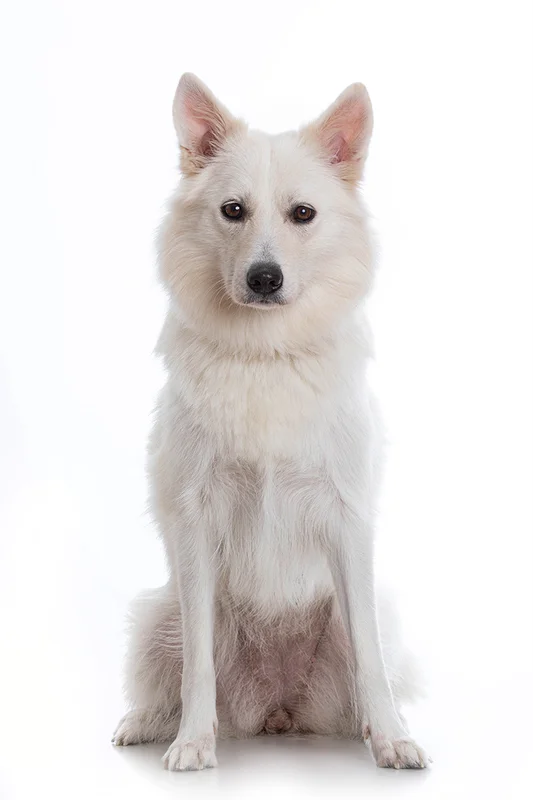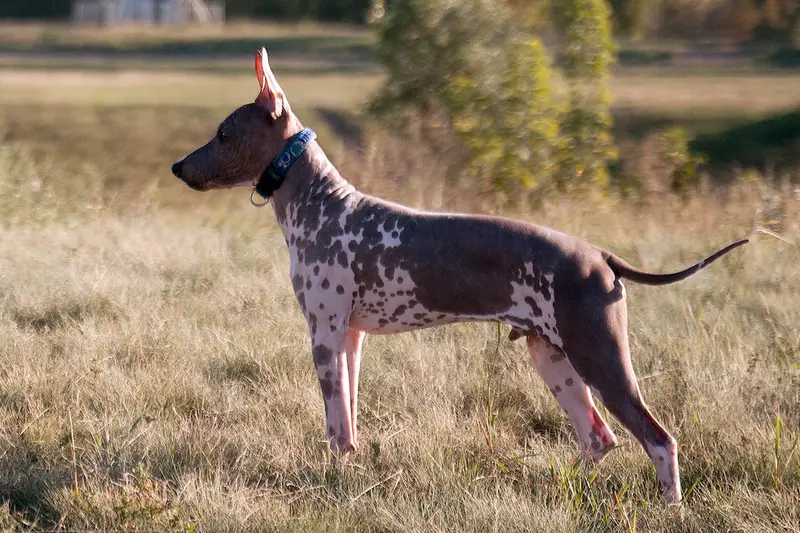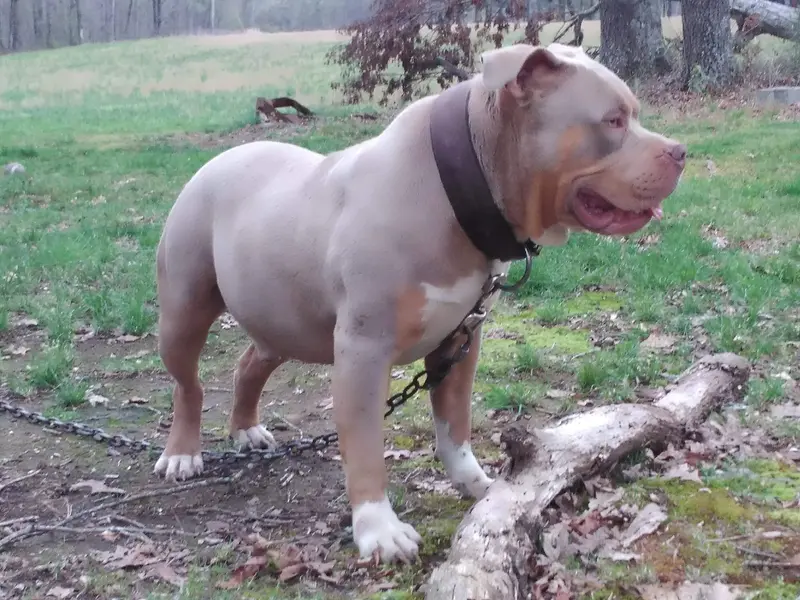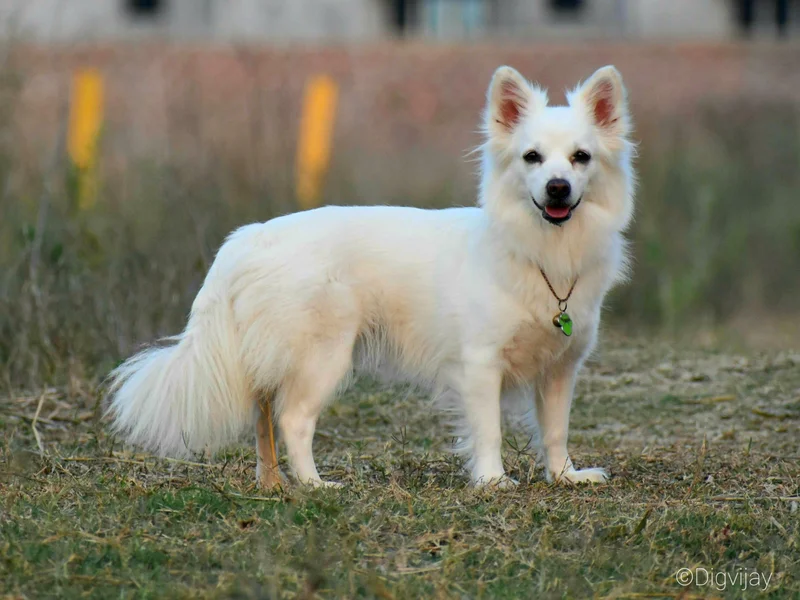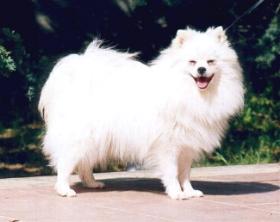Poodle
Also known as: Caniche, Duck Dog, Pudel
Poodles are intelligent, elegant dogs available in standard, miniature, and toy sizes. Known for their friendly nature and trainability, they excel as family pets and in dog sports.
⚡At a glance
🏆Best traits
Key Facts
- Height
- 25-66 cm
- Weight
- 2-25 kg
- Life Span
- 12 - 15 years
- Group
- Non-Sporting
- Origin
- Germany
- Shedding
- Very Low
- Exercise
- 60 min/day
- Best For
- Apartments, Families, Active Owners, First-Time Owners
Overview
🐕Breed Overview
✨Key Traits
💡What Makes Poodle Special
Poodles are characterized by their intelligence, loyalty, and versatility. They are eager to please, making them highly trainable and suitable for various activities, from obedience training to agility competitions.
Their affectionate nature means they thrive on human interaction and companionship, often forming strong bonds with their families. Poodles are also known for their playful spirit, making them excellent playmates for children.
Their elegant appearance and unique grooming styles add to their charm, making them a popular choice among dog lovers.
The Poodle is a breed renowned for its elegance, intelligence, and versatility. Originating from Germany as a water retriever, the Poodle has evolved into a beloved companion across the globe. Available in three sizes—standard, miniature, and toy—this breed is characterized by its curly coat, which can come in a variety of colors including black, white, apricot, and gray.
Poodles are known for their friendly and active nature, making them excellent family pets. They are particularly good with children and thrive on companionship and interaction with their families. Poodles are highly trainable and excel in various dog sports, including agility and obedience competitions.
Their intelligence and eagerness to please make them standout performers in training sessions. However, they do require regular grooming to maintain their distinctive coats, which can be styled in various clips for show or practicality. Living with a Poodle means engaging in regular exercise and mental stimulation to keep them happy and healthy.
They adapt well to different living environments, making them suitable for both apartments and houses with yards. With a lifespan of 12 to 15 years, Poodles are generally healthy but can be prone to certain hereditary conditions, so regular veterinary check-ups are essential. Overall, the Poodle is a delightful breed that brings joy, companionship, and a touch of elegance to any home.
🎉Fun Facts
Poodles are one of the most intelligent dog breeds, often ranking in the top three for trainability.
Poodles have a unique coat that is hypoallergenic, making them suitable for allergy sufferers.
Poodles were originally bred in Germany as water retrievers, showcasing their love for water.
They come in three distinct sizes: standard, miniature, and toy, all sharing similar traits.
They excel in various dog sports, including agility, obedience, and tracking.
Breed Characteristics
Family & Friends
Good Behavior
Get Up & Go
Household Harmony
Temperament & Personality
🐕Core Temperament
Poodles are known for their friendly and intelligent temperament. They are active and playful, making them great companions for families.
While they can be reserved with strangers, they are generally sociable and enjoy interacting with other dogs and pets. Their intelligence allows them to excel in training and dog sports, and they thrive on mental challenges.
Poodles are also known for their loyalty and affection towards their families, often forming strong bonds with their owners.
💫Personality Profile
Poodles are known for their friendly and sociable nature. They bond closely with their families and thrive on companionship.
While they can be reserved with strangers, they typically warm up quickly. Their playful demeanor makes them excellent companions for children, and they enjoy engaging in interactive play.
Poodles are also highly intelligent, which allows them to learn commands and tricks quickly, making training a rewarding experience. They require mental stimulation and can become bored if not adequately challenged, leading to potential behavioral issues.
🔊Vocal Tendencies
Poodles are generally moderate barkers. They may bark to alert their owners of strangers or unusual sounds but are not known to be excessive barkers.
Their vocalizations can vary based on their individual personalities, with some being more vocal than others. Proper training and socialization can help manage their barking tendencies, ensuring they are well-mannered in various situations.
Affection & Social Traits
Big-hearted and highly social — here’s how it shows up day to day.
Energy & Activity
Moderate, steady energy — great for matching your routine.
Communication Style
Moderately talkative — a quick read on noise at home.
Care Requirements
🏃♂️Exercise Requirements
Daily Exercise
Poodles are active and intelligent dogs that require regular exercise to maintain their physical and mental well-being. For adult standard poodles, a minimum of 60 minutes of exercise per day is ideal, while miniature poodles may need around 30-45 minutes, and toy poodles can thrive on 20-30 minutes of activity.
Activities can include brisk walks, runs, swimming, and engaging in dog sports like agility or obedience training. Puppies require shorter, more frequent play sessions to avoid overexertion, while senior poodles may need gentler activities to accommodate their energy levels.
Regular exercise helps prevent obesity, supports cardiovascular health, and reduces behavioral issues stemming from boredom or excess energy. Insufficient exercise can lead to weight gain, destructive behaviors, and anxiety.
Preferred Activities
🏠Living & Adaptability
Space Requirements
Poodles are adaptable dogs that can thrive in various living environments, including apartments, houses with small yards, or larger homes with ample outdoor space. However, they do require sufficient room to move and play.
For apartment dwellers, regular outdoor walks and playtime in nearby parks are essential to meet their exercise needs. Poodles enjoy social interactions, so having access to dog parks or playdates with other dogs can help fulfill their social and exercise requirements.
Owners should be mindful of their poodle's energy levels and provide opportunities for mental stimulation to prevent boredom and potential destructive behavior.
Climate Preference
🍲Feeding Guide
Schedule
Food Types
Portion Size
Special Nutritional Needs
Poodles may benefit from a diet rich in omega fatty acids for coat health, as well as joint supplements for larger varieties. It's important to monitor their weight, as they can be prone to obesity if overfed. Always consult with a veterinarian for specific dietary recommendations based on individual health needs.
✨Grooming Requirements
Grooming Overview
Poodles require regular grooming to maintain their curly coat, which can mat if not properly cared for. Brushing should be done at least 2-3 times a week, with daily brushing recommended for show dogs.
Bathing should occur every 4-6 weeks, and professional grooming is often necessary to achieve specific styles. Tools needed include a slicker brush, comb, and clippers for trimming.
Special attention should be given to the ears and paws, as hair can trap dirt and moisture, leading to infections. Regular ear cleaning and nail trimming are also essential for overall health.
Care Schedule
Brush 2-3 times a week, bathe every 4-6 weeks, trim nails every 2-4 weeks.
Health Profile
⚕️Health Care
Regular veterinary care, including vaccinations, dental check-ups, and preventive treatments, is crucial for maintaining a poodle's health and longevity. Early detection of health issues through routine exams can lead to better management and treatment outcomes. Owners should also monitor their poodle's weight and overall health, adjusting diet and exercise as needed to promote a long, healthy life.
Health Issues Overview
⏳Average Lifespan
Genetic Factors
Genetics play a significant role in the lifespan of poodles, with hereditary conditions such as hip dysplasia and thyroid issues being more prevalent in certain lines. Responsible breeding practices that prioritize genetic health can help reduce the incidence of these conditions. Potential owners should seek reputable breeders who conduct health testing and provide health clearances for their breeding stock.
Living Conditions
Poodles thrive in environments that provide ample opportunities for exercise and mental stimulation. Living in a stable, loving household with regular interaction and activities can enhance their lifespan. Access to outdoor spaces for play and exercise is beneficial, while a stressful or chaotic environment may negatively impact their health and longevity.
🏥Common Health Issues
Hip Dysplasia
Warning Signs
🔬Diagnosis
X-rays and physical examination by a veterinarian.
💊Treatment
Medications, weight management, and in severe cases, surgery.
📝Management Tips
Maintain a healthy weight, provide joint supplements, and avoid excessive jumping or strenuous exercise.
Addison's Disease
Warning Signs
🔬Diagnosis
Blood tests and ACTH stimulation test.
💊Treatment
Hormone replacement therapy.
📝Management Tips
Lifelong medication and regular veterinary check-ups.
Thyroid Issues
Warning Signs
🔬Diagnosis
Blood tests to measure thyroid hormone levels.
💊Treatment
Thyroid hormone replacement.
📝Management Tips
Regular monitoring and medication as needed.
Gastric Torsion (Bloat)
Warning Signs
🔬Diagnosis
Physical examination and X-rays.
💊Treatment
Emergency surgery.
📝Management Tips
Feed smaller meals, avoid vigorous exercise after eating, and consider gastropexy surgery for at-risk dogs.
Progressive Retinal Atrophy
Warning Signs
🔬Diagnosis
Ophthalmic examination by a veterinary ophthalmologist.
💊Treatment
No cure; supportive care.
📝Management Tips
Regular eye exams and monitoring for changes in vision.
🛡️Preventive Care
🔬Hip Evaluation
Evaluates hip joint conformation and detects dysplasia.
📅 At 2 years of age and periodically thereafter.
🔬Thyroid Function Test
Measures thyroid hormone levels to detect hypothyroidism or hyperthyroidism.
📅 Annually after 5 years of age.
🔬ACTH Stimulation Test
Assesses the presence of Addison's disease through hormone stimulation tests.
📅 At 2 years of age and if symptoms arise.
🔬Ophthalmic Examination
Checks for eye diseases, including cataracts and progressive retinal atrophy.
📅 Every 1-2 years, especially in older dogs.
🔬Comprehensive Blood Panel
Evaluates the overall health and function of internal organs.
📅 Annually after 5 years of age.
Training
🧠Intelligence & Trainability
💪Work Drive
Poodles possess a strong work drive and require mental stimulation to keep them engaged. Activities such as obedience training, agility courses, and interactive games can fulfill their need for tasks.
Their history as water retrievers means they enjoy activities that involve fetching and swimming. Providing puzzle toys or engaging in scent work can also challenge their minds and prevent boredom.
Without sufficient mental and physical stimulation, poodles may develop behavioral issues, such as excessive barking or destructive tendencies.
⚠️Training Considerations
Poodles are generally eager to please and highly trainable, but they can exhibit behavioral challenges if not properly socialized or trained. Common issues include separation anxiety, especially in toy and miniature varieties, which may lead to destructive behavior if left alone for extended periods.
Additionally, some poodles may be reserved or aloof with strangers, requiring early socialization to ensure they are comfortable in various environments. To overcome these challenges, consistent training, positive reinforcement, and gradual exposure to new experiences are essential.
Engaging in obedience classes or dog sports can also help channel their energy and intelligence in a productive manner.
📝Training Tips
Training a poodle can be a rewarding experience due to their intelligence and eagerness to learn. Positive reinforcement methods, such as treats and praise, work best for this breed. Start with basic commands like sit, stay, and come, gradually progressing to more advanced tricks and tasks.
Consistency is key, and training sessions should be kept short and engaging to maintain their interest. Socialization is crucial, especially for puppies, to help them become well-rounded adults. Exposing them to different people, pets, and environments will enhance their confidence and adaptability.
Poodles also thrive in structured activities like agility training, which can provide both physical exercise and mental stimulation.
History & Heritage
📜Origin Story
The poodle's history can be traced back to Germany, where it was originally bred as a water retriever. ' This breed was utilized for hunting waterfowl, showcasing its exceptional swimming abilities and keen intelligence.
As the poodle made its way to France, it became a beloved companion of the aristocracy, leading to its establishment as a national breed. The poodle's unique grooming styles and elegant appearance further solidified its status as a symbol of sophistication.
Throughout the years, the poodle has maintained its versatility, excelling in various dog sports and activities, while also serving as a loyal family companion.
⏳Development History
The poodle's origins are somewhat disputed, with evidence suggesting that it descends from curly-coated water dogs like the barbet. ' Over time, the poodle gained popularity in France, where it was refined and standardized.
The breed was recognized for its intelligence and trainability, leading to its use in various roles, including circus performances and as a companion for the elite. Today, poodles are recognized in three sizes: standard, miniature, and toy, each retaining the breed's core characteristics while catering to different lifestyles.
🛡️Purpose & Historical Role
Originally bred for water retrieval, poodles have evolved into versatile companions known for their intelligence and trainability. They have been used in various roles, including hunting, herding, and as service dogs.
Their ability to excel in dog sports such as agility, obedience, and tracking has made them popular in competitive settings. Poodles are also recognized for their hypoallergenic qualities, making them suitable for families with allergies.
Today, they serve primarily as loving family pets and companions, while still retaining their working dog heritage.
🏺Cultural Significance
The poodle is often associated with elegance and sophistication, particularly in France, where it became a symbol of the aristocracy. Its unique grooming styles, such as the 'continental clip,' have made it a favorite in dog shows and competitions.
The breed has also been featured in various forms of media, including films and literature, showcasing its versatility and charm. Historically, poodles were not only companions but also skilled working dogs, particularly in water retrieval, which has contributed to their enduring popularity.
Conservation Status
The breed exists today and isn’t classified as extinct.
Often found in multiple regions; easier to encounter.
This breed is well-established with healthy population numbers.
?Frequently Asked Questions
Is the Poodle good for apartment living?
Yes, the Poodle generally does well in apartments. They adapt comfortably to smaller spaces and can thrive with regular walks and indoor play. Their temperament and energy level make them a good fit for apartment living, though they still need daily exercise.
How much does a Poodle shed?
The Poodle is a very low-shedding breed, making them an excellent choice for people who prefer minimal pet hair around the home. Regular grooming is still recommended to keep their coat healthy, but you won't find much fur on your furniture.
Are Poodles easy to train?
Absolutely! The Poodle is exceptionally easy to train and is one of the most trainable breeds available. They are highly intelligent, eager to please, and pick up new commands with remarkable speed. They excel in obedience training and various dog sports.
How long do Poodles live?
The average lifespan of a Poodle is 12 - 15 years. Lifespan can be influenced by genetics, diet, exercise, and overall health care. Regular veterinary check-ups and a healthy lifestyle can help your Poodle live a long and happy life.
Is the Poodle good with kids?
Absolutely! The Poodle is exceptionally good with children and makes a wonderful family companion. They are patient, gentle, and often form strong bonds with the younger members of the family. Their tolerant nature and playful spirit make them a top choice for households with kids.
How much exercise does a Poodle need?
The Poodle is a high-energy breed that needs approximately 60 minutes of exercise daily. They thrive with vigorous activities such as running, hiking, or interactive games. Without adequate exercise, they may develop behavioral issues from pent-up energy.
Is the Poodle good with other pets?
Yes, the Poodle generally does well with other pets. Their friendly and adaptable nature helps them coexist peacefully in multi-pet households. Early socialization helps ensure the best relationships with other animals.
